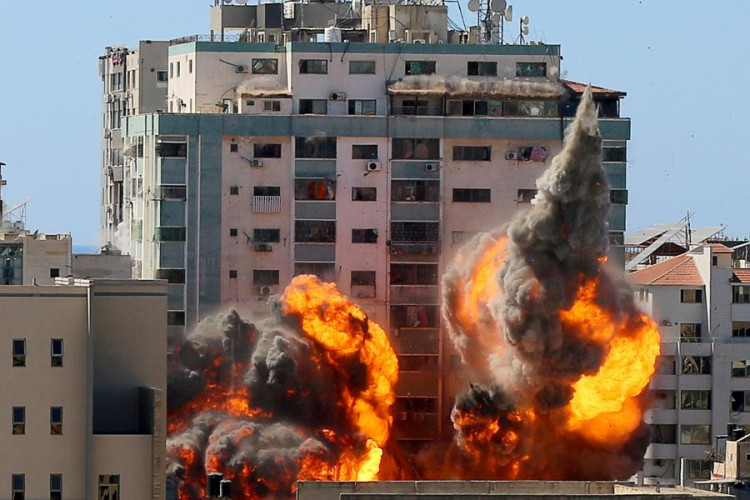Hamas has made it clear that any agreement with Israel must include a firm commitment to a permanent ceasefire and a complete withdrawal from the Gaza Strip. This position was articulated by Osama Hamdan, a senior Hamas official, during a televised press conference on Tuesday. "We cannot agree to an agreement that doesn't secure, guarantee, and ensure a permanent ceasefire, a complete withdrawal from the Gaza Strip and completing a real serious swap deal accordingly," Hamdan stated.
The negotiations, mediated by Qatar, the United States, and Egypt, have reached a critical juncture. Qatar has urged Israel to present a clear and unified position backed by its entire government to facilitate the deal's progression. Despite some positive signals, the talks remain complex and fraught with challenges.
The proposal on the table, as outlined by U.S. President Joe Biden, involves a three-phase approach. The first phase would see a six-week ceasefire during which Israeli forces would withdraw from all populated areas of Gaza, and some hostages, including the elderly and women, would be released in exchange for hundreds of Palestinian prisoners. The second phase would include negotiations for a permanent ceasefire, contingent upon Hamas meeting its commitments, followed by the release of all remaining hostages and a full Israeli withdrawal from Gaza.
Hamdan's remarks underscored Hamas's skepticism about Israel's intentions. "Israel only wants one phase where it takes all its hostages, then it resumes its aggression and war on our people," he said. He called on mediators to secure a clear commitment from Israel to a permanent ceasefire and full withdrawal.
Prime Minister Benjamin Netanyahu has reiterated Israel's stance, emphasizing the need to continue the war until Hamas is defeated. In a recent conversation with French President Emmanuel Macron, Netanyahu insisted that any agreement must allow Israel to achieve its war objectives, including the elimination of Hamas.
Netanyahu's coalition partners, particularly from the far-right Otzma Yehudit and the Religious Zionist Party, have threatened to leave the coalition if the government promises to halt the war without achieving complete victory over Hamas. This political pressure adds another layer of complexity to the negotiations.
The United States has been actively involved in pushing for the deal. White House officials, including US special envoy Brett McGurk and CIA Director William Burns, are expected to travel to the region to help finalize the agreement. The Biden administration has garnered broad international support for the proposal, including backing from the United Arab Emirates, Saudi Arabia, Qatar, Jordan, Egypt, and the G7. A UN Security Council resolution supporting the deal is also being sought.
Matthew Miller, a spokesperson for the US State Department, emphasized the urgency of Hamas accepting the deal. "The international community must continue to insist that Hamas accept this deal. The proposal on the table is nearly identical to what Hamas said it would accept just a few weeks ago," Miller said.
Qatar, which has played a pivotal role in mediating the talks, confirmed that it had delivered an Israeli proposal to Hamas reflecting the positions stated by Biden. Qatari Foreign Ministry spokesperson Majed Al-Ansari stressed the need for clear positions from both parties to reach a ceasefire deal. "The ceasefire deal should immediately end the long suffering of all people in Gaza and the hostages and their families and provide a roadmap for a permanent ceasefire and an end to the crisis," Al-Ansari said.




